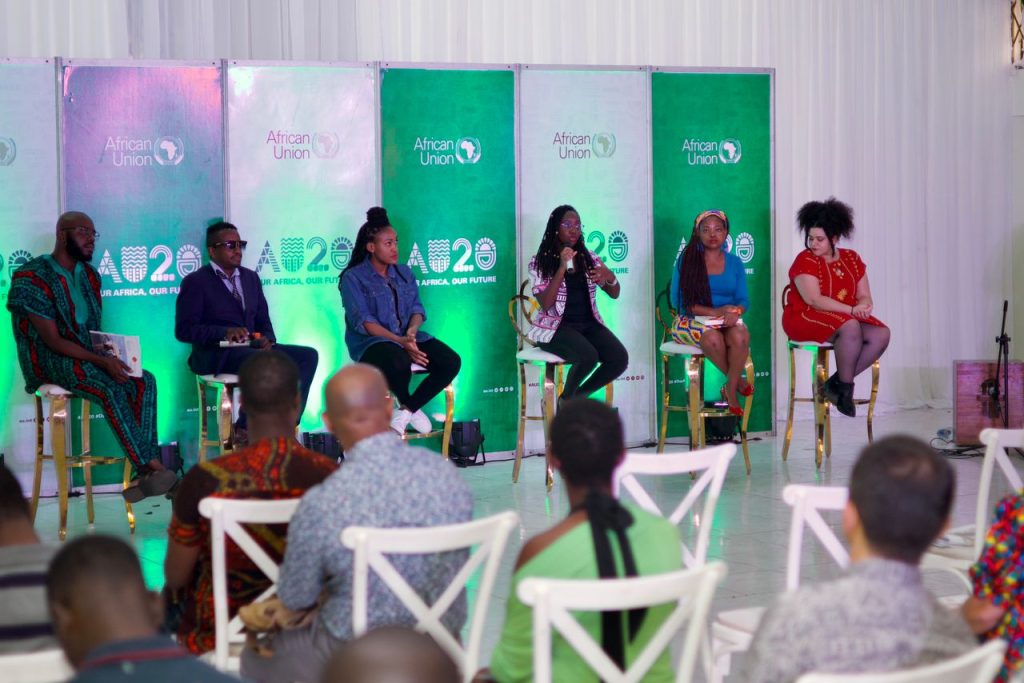By Mildred Siabi-Mensah
Takoradi, Nov. 28, GNA – The Library of Africa and The African Diaspora (LOATAD) has hosted distinguished writers from the African Continent to brainstorm on their works and project themes that amplified the Future of the African Continent.
The writers were gathered under the AU20 Writers Residency programme organised by the LOATAD as part of the African Union 20th anniversary celebration and would read from various publications with focused on “Our Africa, Our Future.”
Over 400 African Writers from 35 countries applied for the residency but five were selected.
They are Nour Kamel, Egyptian poet and editor, Sukoluhle Nyathi, Zimbabwean creative writer, editor and data analyst, Tony Mochama, Kenyan fiction writer and journalist, TJ Benson, Nigerian award-winning novelist and Musih Tedji Xaviere, Cameroonian writer.
Mr Sukhrob Khoshmukhamedov, the Deputy Resident Representative of UNDP, said in January 2021, UNDP partnered with the African Union Commission to launch series of activities under the AU 20th initiative that would educate, inform and engage African citizens on the mandates and policies of the African Union since its formation in 2002.
The programme would use the voices of Africa’s creative talents to mark a historic moment in the AU’s leadership of the continent’s development, unity and peace through a celebration of Africa’s culture, creativity, art and innovation.
He said it would also showcase and present the writers’ completed works to key stakeholders from the government, diplomatic and international community, media, art and literary communities, as well as the public.
Mr Khoshmukhamedov explained that Some 20 years ago, the African Union was established at the Durban Summit of 2002 to spearhead Africa’s development and integration in close collaboration with African Union Member States, the Regional Economic Communities and African citizens.
He added that creative economy was an important source of commercial and cultural value and an enabler of trade and sustainable development contributing some1.5 million dollars to the global creative economy an avenue for creative industries to solve challenges and inspire entrepreneurship.
Ms. Sylvia Arthur, the Founder of LOATAD addressing participants at the Dubois centre, described the session as real privilege to host prolific African writers.
She said their work served as a key function in stimulating the public imagination and challenging the status quo.
Citing the words of the Kenyan writer, Ngugi Wa Thiong’o: “…A writer has no choice. Whether or not he is aware of it, “said this work reflected the intense economic, political, cultural and ideological struggles in a society.”
The founder of LOATAD was therefore grateful to the African Union and the UNDP for proactively investing in the support of African writers and for their foresight in recognizing the contribution writers made to Africa’s cultural, social and economic development and progress.
She prayed that African writers would be nurtured and supported to achieve their full potential of a great continent.

The Reverend Reuben Kwesi Kwadzofio, the Director of the Dubois Centre, asked for the consolidation of achievements in economic, social, growth, peace, security and governance as a commitment to make its inhabitants more prosperous.
In 2019, the United Nations General Assembly declared 2021 as the “International Year of Creative Economy for Sustainable Development”, in recognition of creative industries as crucial sectors for the attainment of the 2030 agenda, and the important role they played in international trade, in creative goods and services and in the contribution to the global economy.
The AU20 Residency Programme was thus developed to advocate the role of cultural and creative industries in Africa’s development and to build bridges between cultural and creative professionals, development practitioners, policymakers and civil society representatives, as we all have an important voice and story to tell about Africa’s past, present and future.
GNA